HOME | RESOURCES | CLUB HALO | GET IN TOUCH

Are you prepared for the new Employer’s Duty to prevent Sexual Harassment of employees?
by Gill Bell – HR | Leadership | DEI
posted 26/09/24
But hasn’t sexual harassment been illegal in the UK for years?
Yes, of course. It is currently unlawful to engage in any conduct of a sexual nature that creates an intimidating, hostile, degrading, humiliating or offensive environment for an employee.
This new legislation is a further step towards eradicating sexual harassment of employees in the course of employment.
What is changing?
Currently, the main agenda for Tribunals is to determine if sexual harassment has actually taken place. From 26th October 2024 the Tribunal will also be examining whether the employer has taken REASONABLE steps to PREVENT sexual harassment occurring.
If the Industrial Tribunal finds the employer did not take reasonable steps, they may increase the compensation due to the employee by up to 25%.
The Equality and Human Rights Commission (EHRC) draft guidance suggests they will be looking for employers to audit current activity in this area, e.g.:
⬜ Have managers received training?
⬜ Have all staff received training?
⬜ Have they assessed risks and opportunities when this might occur?
⬜ Have they explored historical occurrences and how they happened?
⬜ How have they dealt with complaints in the past.
To demonstrate that you, as an employer, are taking reasonable steps, are you able to provide documentation of the steps you have taken to prevent sexual harassment?
We’re still awaiting final guidance but can expect that much larger organisations will come under much more scrutiny, so until there is concrete guidance, I would advise your action plan to implement this before 26th October should include:
(1) Refresh on the current equal opportunities and harassment law.
⬜ Conduct an audit of your business to identify any risks. When is sexual harassment more likely to arise?
⬜ Do you have individuals working late, more isolated, with just one or two people?
⬜ Do you have gender imbalances or power imbalances in teams where some employees may feel more vulnerable?
⬜ Are you staff expected to attend events, conferences, occasions where there is alcohol and behaviours more likely to change?
⬜ looking at exit interview information and checking historical scenarios when employees may have felt uncomfortable- perhaps check exit interviews for any more insight
⬜ Examine any previous complaints and question whether they were dealt with effectively. Note how to improve processes.
—–
(2) Take steps to reduce or eradicate these risks.
—–
(3) Conduct management training and ensure all your manager understand the steps to take if they receive a complaint. Conduct staff training and ensure they understand appropriate v inappropriate behaviour and banter regardless of intent. Make sure they understand what to do if they experience or witness harassment. Update your onboarding to include this training for all new joiners, then diarise annual refreshers for all staff at all levels. Document on your HRIS.
—–
(4) Consider how much alcohol is available at your own events. Always serve food and perhaps consider banning shots.
—–
(5) Review your policies. Are they clear. Do they outline clear example of what is acceptable v unacceptable behaviour? And would an employee know how to raise complaint and feel comfortable doing so?
—–
(6) Encourage a strong speak-up culture. (Be careful of insisting on a zero-tolerance as can be difficult to enforced when sometimes there are areas to investigate).
—–
(7) Ensure you have a process and resources to support any employees who are victims of harassment.
—–
Finally, another change – this duty also includes prevention of sexual harassment by THIRD PARTIES.
So you have a duty to protect employees from delegates, client, candidates, at events or even from lecherous drunken delegates at conferences. Consider making customers & clients aware of your position through published wording in supplier terms or on your website
This should be a good starting plan – don’t forget: document, document, document!
need extra support?
empowering your growth with people

Gill is an experienced HR and commercial leader and Executive Coach.
After holding senior HR roles at EMI and The Sanctuary Group, she transitioned into HR and Business Strategy consulting before joining Handle in 2012.
[email protected]
+44 (0)20 7569 9995
People Consultancy & Talent Accelerators DESIGNED FOR THE great brands of tomorrow.
Talent Halo t/a Handle Recruitment Ltd. Registered Office: Ink Rooms, 25‑37 Easton Street, London WC1X 0DS.
Registered Number: 01419017. Registered in England & Wales. Privacy policy | Cookie policy
© Copyright 2024 Handle Recruitment. All rights reserved.
